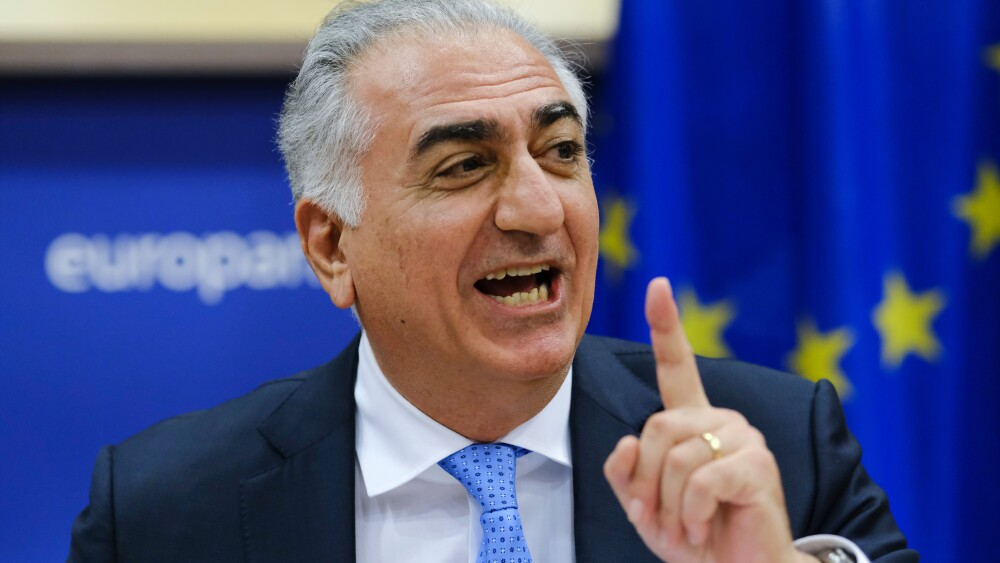On July 25, 2025, the National Union for Democracy In Iran (NUFDI), the advocacy group of ousted Crown Prince Reza Pahlavi, published the Emergency Phase Booklet, a plan for the first months after the fall of the Islamic Republic, with Pahlavi leading the country as the transitional authority.
Debate started immediately. Veteran journalist and monarchist Amir Taheri objected to the plan, arguing that a white paper is unnecessary because restoring the Pahlavi-era royal constitution suffices. His criticism resulted in Pahlavi unfollowing him on X and attacks by the pro-Pahlavi trolls.
Pahlavi and his insiders hate criticism from their followers and demand unquestioned allegiance.
The person who apparently directed the mob was Amir Etemadi, Pahlavi’s closest adviser who, in previous years, introduced himself as the crown prince’s chief of staff. Rather than address Taheri’s specific complaint, Etemadi targeted the man. He invoked a 2011 Wall Street Journal op-ed that Taheri wrote, in which Taheri cited reformist regime insiders-turned-critics Mostafa Tajzadeh and Mohsen Armin, as well as Grand Ayatollah Yousef Sane’i, who “concluded that only regime change can save Iran from national catastrophe.” Etemadi objected to Taheri’s suggestion that the United States should seek assistance from people who once supported the regime.
The hypocrisy was astounding. Against the backdrop of the Green Movement, Pahlavi stated that he would accept help from regime insiders, including former Prime Minister Mir-Hossein Moussavi and two-time presidential candidate Mehdi Karrubi, to bring regime change. Etemadi was a director for Karrubi’s 2009 presidential campaign. Pahlavi himself has established a mechanism to encourage security force defections.
There is an easy explanation. Pahlavi and his insiders hate criticism from their followers and demand unquestioned allegiance. General Robert “Dutch” Huyser, dispatched to Iran in 1979 to rescue the shah’s regime following his flight from Iran, wrote that convincing the Iranian military’s top brass to take initiatives was an impossible task because they lacked the agency to act without royal orders; the crown prince expects his foot soldiers to act the same way.
Etemadi’s elevation to Pahlavi’s inner ring of advisers is revealing. In 2018, without consultation or permission, the group’s founders added me to Farashgard, a group of young dissidents. I made the best out of it. Its mission statement was one with which I agreed: No matter whether the future of Iran was a monarchy or a republic, Pahlavi would need to play a major role. The group derived legitimacy from the crown prince and received “advice” from his office.
Etemadi was also a member. I quickly realized the group was hopeless; it did not last a year. Its failure was not any one person’s fault, but its death was Etemadi’s. He led the bylaws working group and was the self-appointed administrator of the Slack group. He used these positions to remove heads of other working groups over disagreements and accused other members of untrustworthiness and of possibly being regime spies. Later, screenshots of private correspondence proved that Etemadi conspired with other members (including Alireza Kiani, who currently works at NUFDI), to accuse others of being regime agents. His last act, at Kiani’s encouragement, was to change the passwords to social media and email accounts, locking everybody out, killing Farashgard.
Despite suppressing dissent among his followers, in private meetings with American policy experts, Pahlavi asks for criticism.
Out of a few dozen members, only Etemadi knew Pahlavi’s email address. At first, it appeared that he was using his direct line to bring the royal decree in his favor during disagreements, portraying himself as the sole protector of Pahlavi’s interest. Later, some members wondered whether he was doing Pahlavi’s dirty work at the crown prince’s request. Throughout those months, Etemadi grew closer to Pahlavi and set the tone for his organization. He unleashed the trolls on anyone who raised questions, no matter how loyal they were to Pahlavi.
Pahlavi’s words could not be more at odds with his confidant’s actions. His supporters say critics should trust the man’s own words and ignore Etemadi. But there are only two explanations for this dissonance: Either the crown prince is unaware of his closest adviser’s actions, or he is aware but retained him for six years. The crown prince, then, is either a fool or a liar. The latter is more likely; Pahlavi is not so incompetent.
A few years ago, a senior Middle East policy expert dismissed Pahlavi as a capable force to me: “He’s a divisive figure—always has been.” His reputation for divisiveness makes him unreliable among Washingtonians. If Pahlavi is serious about leading a revolution in Iran, he should repair this image.
Despite suppressing dissent among his followers, in private meetings with American policy experts, Pahlavi asks for criticism. It reminds one of Yasser Arafat, who was notorious for talking of peace in English and encouraging terror in Arabic. Arafat may have become a prestigious figure, but Pahlavi should note, Arafat failed in his quest for Palestinian statehood. Pahlavi may be a household name among foreign policy analysts, but his own failing seems to condemn him to permanent exile.






